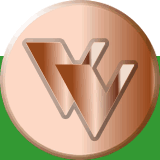
The terms vegetarian and vegan can be used to cover a spectrum of philosophies, so it is a good idea to start by reviewing some quick definitions.
A vegetarian is someone who chooses not to eat meat (which includes poultry, fish and shellfish) or products derived from dead animals, such as animal fats or gelatine. A vegetarian may or may not eat eggs or dairy products (such as milk, butter, cheese). In common use, vegetarian is usually taken to mean 'lacto-ovo-vegetarian', who do eat eggs and dairy products. However, sometimes vegetarian may be used to mean 'strict vegetarian', or 'vegan'. If in doubt, it is best to check with an individual what exactly they mean, or err on the side of caution.
A vegan diet excludes meat and all animal products. Therefore a vegan will not eat eggs, honey or dairy products, or any products derived from these, such as whey powder or lactic acid. Veganism extends beyond just food and diet into a whole lifestyle, so vegans will also avoid the use of animal products such as wool, silk, and leather and buy pharmacuetical products that have not been tested on animals.
For more details, check out the Vegan Volumes' glossary.
These pages were last updated 22nd May 2010
Copyright © 2004-2010 Vegan Volumes. All rights reserved. Notice. Privacy
Policy.





